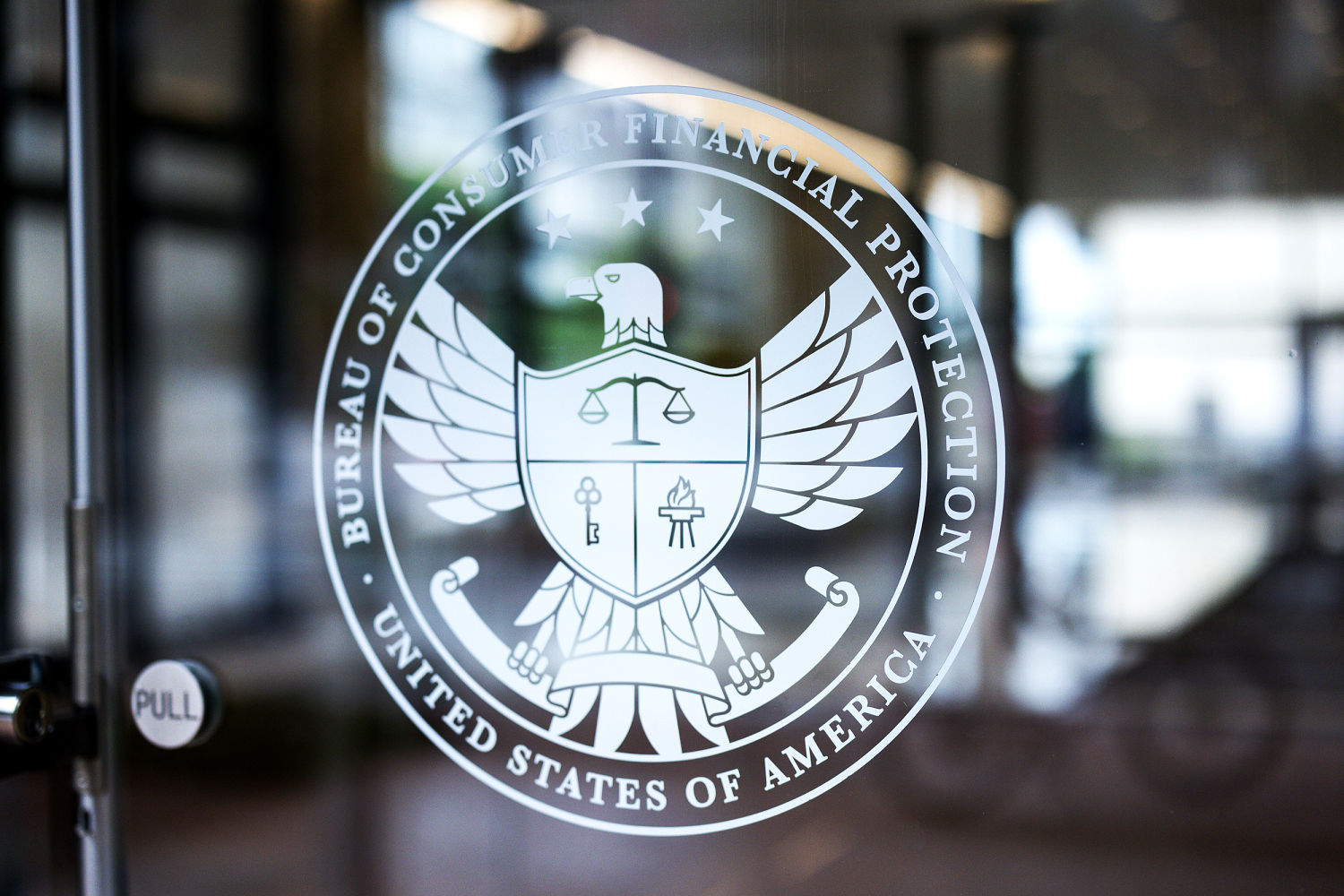How Trump’s antitrust officers can tackle Big Tech and keep America innovative

As the Trump administration takes shape, one key question with implications for consumers across America is how it will handle Biden-era antitrust cases against Google, Amazon, Meta and other tech giants.
The Department of Justice and Federal Trade Commission appear ready to regulate mergers, acquisitions and innovative technologies more pragmatically than former President Joe Biden’s aggressive antitrust officials did. At the same time, they are expected to spearhead the Trump administration’s fight against purported abuses by large tech giants and platforms, including the suppression of conservative speech and business practices they believe harm consumers and “little tech” firms.
Striking the right balance between punishing anticompetitive behavior and allowing companies to leverage their scale to satisfy consumers would be a win for innovation and prosperity. Getting the balance wrong would cost U.S. consumers, do nothing for small businesses and make America less competitive with tech rivals like China.
Let’s start with Google, which is subject to two Justice Department antitrust cases. It is appealing a district court ruling that it illegally maintains its 90 percent-plus market share in searches by paying browsers like Apple’s Safari and Mozilla Firefox to make its engine their default, thereby circumventing rivals such as Microsoft’s Bing. The judge, however, acknowledged that Google gained dominance with a superior product and feedback from its users.
Proposed remedies, like forcing Google to sell its search engine or its Chrome browser (as Biden's Justice Department requested) would destroy its consumer-favored, integrated services. This would harm users and competition, something Trump recognizes. Banning Google from making default agreements is a more subdued option. However, this may lessen competition among browsers since Firefox and others would lose key revenue, ironically weakening their ability to challenge Chrome.
Forcing Google to release its search indexation data would likely help competitor search engines improve. Yet under this precedent, would Google (or its competitors) invest in improving products or gathering data that they may have to share?
Enforcers must weigh all this when deciding what to request next from the courts. Importantly, the Department of Justice was spared from having to demonstrate that rival engines have a realistic chance of becoming competitive against Google absent the default agreements — an error that could see the result overturned.
The other Google case is for alleged abuse of a monopoly in three layers of digital advertising. The Justice Department argues that Google harms its customers by forcing them to use its full stack of three different ad services through an anticompetitive tying arrangement, allowing it to charge excessive prices. Google says customers aren’t forced to use all services and that bundling is efficient and beneficial.
Here too, enforcers should tread carefully. Even if the court accepts the Justice Department’s prior narrative — including that Google is a monopolist despite competition from social media, websites, streaming services and apps — forcing Google to abandon some ad services could destroy any efficiencies or product improvements that integration allows.
This would deter firms from investing in innovative advertising tools, require “middlemen” to bridge gaps between unintegrated platforms, and raise customer costs, an outcome that would harm small businesses, including “little tech.” It’s also why blocking specific practices, based only on evidence of real harm, is preferable to structural breakups.
Such evidence may be hard to come by in the FTC’s case against Amazon. Amazon encourages sellers to offer lower prices on its platform than anywhere else through a “buy box” feature that expedites the ordering process. The FTC has argued that this reduces competition by incentivizing sellers to offer higher prices than they otherwise would when selling outside Amazon. However, it also increases Amazon’s value to consumers as a one-stop shop and helps sellers and customers enjoy low shipping costs.
Finally, Biden’s FTC argued that Meta illegally formed a monopoly by acquiring Instagram and WhatsApp, but relied on a market definition that excludes ongoing Meta competitors, including LinkedIn, YouTube, X and others. Some have gained prominence after Meta’s acquisitions, making the FTC’s claim especially tenuous and perhaps a waste of agency resources.
Unwinding Meta’s acquisitions, however unlikely at this point, might mean a new trophy in the FTC’s pool room. There’s little reason to think it will mean product improvements or limit future governments’ ability to pressure companies into suppressing information or dissent.
New FTC Chair Andrew Ferguson recently criticized an FTC study for speculating without sufficient evidence on how partnerships between big tech and AI startups could harm competition. Hopefully, the whole administration will mix vigilance toward legitimately anticompetitive behavior with a better understanding of how business partnerships can unite big tech’s customer-reaching, price-lowering resources with new ideas and technology provided by startups.
Trump’s enforcers should apply this pragmatism in choosing which cases to continue. Tough stances against big tech have populist appeal and wrongdoers should be punished. However, unwinding competitive companies for narrow or debatable violations is a cure worse than the poison.
Satya Marar is a visiting postgraduate fellow at the Mercatus Center at George Mason University specializing in competition, innovation and governance.
-

Big Tech Keeps Its A.I. Data Center Spending Boom Alive
An apparent breakthrough in efficiency from the Chinese start-up did not make tech’s biggest companies question their extravagant spending on new data centers.The New York Times - Feb. 8 -
How Democrats in Congress are tackling Trump's massive government changes
Democrats in Congress are working on messaging and other moves to confront President Trump's changes as he settles into his second term in the White House. CBS News' Taurean Small reports from ...CBS News - 5d -
Big Tech’s hinterland of ideas
Surveying the thinking that animates America’s new oligarchsFinancial Times - 2d -
How the ripple effect of inflation, tariff concern could impact 2 big tech stocks
Inflation-wary consumers are still worried about rising prices — for good reason.CNBC - 3d -

‘The Office,’ ‘Ridiculousness,’ and ‘The Big Bang Theory’ Provide a Brilliant Lesson in How to Define Success
Entrepreneurs are much like artists in that they define success on their own terms. And it often means following a passion.Inc. - 5d -

How Trump can fight for animals worldwide
As Trump navigates his second stint in the Oval Office, he has an opportunity to once again put the humane treatment of animals at the center of the national conversation.The Hill - 2d -

How America's chief consumer-protection agency came into the Trump administration's crosshairs
When the Consumer Financial Protection Bureau made an appearance in the Heritage Foundation’s Project 2025 blueprint, the conservative group’s plan was simple: Abolish it entirely.NBC News - 3d -

How Trump's immigration crackdown is affecting people across America
ABC News correspondents deployed across the U.S. to see the varying impacts of the Trump administration's crackdown.ABC News - 2d -

The heartlessness of the deal: how Trump’s ‘America first’ stance sold out Ukraine
The US president does not care who controls east Ukraine, so long as he can access the rare earth minerals underneath. Europe live: latest news updates from the Munich security conference In ...The Guardian - 1d
More from The Hill
-

Sunday shows preview: Trump's Russia-Ukraine moves rattle allies; Dems play defense against DOGE
President Trump’s push to secure a peace deal between Russia and Ukraine has rattled allies over the Atlantic and has unsettled some Republican Senators who want to see Kremlin leader Vladimir ...The Hill - 44m -

Many in new survey suggest news consumption, spending influenced by 2024 election
A new YouGov poll has found that almost half of Americans, 44 percent, are now consuming news differently than they did before the 2024 election while 38 percent have reported a change in their ...The Hill - 1h -

The mad king of Kyiv: Why Zelensky can’t afford to end the war
Volodymyr Zelensky, Ukraine's president, has been accused of prioritizing war over peace, as he has refused to end the conflict, which has resulted in a catastrophic loss of life for his country.The Hill - 1h -

Americans trust Trump on immigration, economy over environment, health care: Poll
A recent YouGov survey found that a majority of Americans, 52 percent, have high levels of trust in President Trump's ability to manage immigration. But they are less likely to trust him with ...The Hill - 1h -

Sheryl Crow sells Tesla to donate funds to embattled NPR
Country music star Sheryl Crow said she will donate funds from selling her Tesla to NPR amid President Trump's intensified calls to slash federal funding for public broadcasters — calling out tech ...The Hill - 2h
More in Politics
-
3 men claiming to be from DOGE show up at SF City Hall, demand records
San Francisco city officials are investigating after three men who claimed to be from the Department of Government Efficiency (DOGE) showed up at City Hall on Friday demanding records from offices ...CBS News - 14m -

Sunday shows preview: Trump's Russia-Ukraine moves rattle allies; Dems play defense against DOGE
President Trump’s push to secure a peace deal between Russia and Ukraine has rattled allies over the Atlantic and has unsettled some Republican Senators who want to see Kremlin leader Vladimir ...The Hill - 44m -

Many in new survey suggest news consumption, spending influenced by 2024 election
A new YouGov poll has found that almost half of Americans, 44 percent, are now consuming news differently than they did before the 2024 election while 38 percent have reported a change in their ...The Hill - 1h -

The mad king of Kyiv: Why Zelensky can’t afford to end the war
Volodymyr Zelensky, Ukraine's president, has been accused of prioritizing war over peace, as he has refused to end the conflict, which has resulted in a catastrophic loss of life for his country.The Hill - 1h -

Americans trust Trump on immigration, economy over environment, health care: Poll
A recent YouGov survey found that a majority of Americans, 52 percent, have high levels of trust in President Trump's ability to manage immigration. But they are less likely to trust him with ...The Hill - 1h